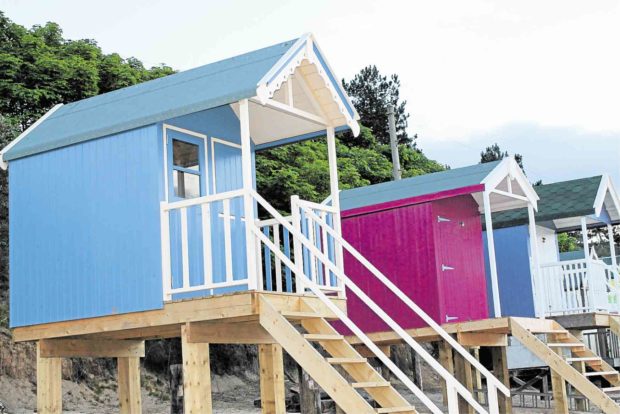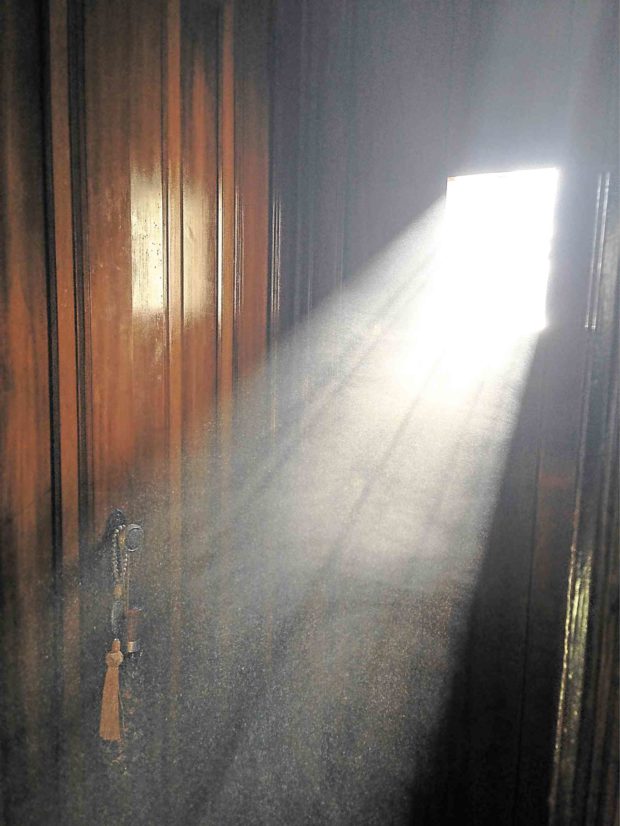‘Anti-ghost’ architecture
Who’s afraid of ghosts?
In the Philippines, a lot apparently. Many Filipinos even observe the folklore that is the “Ghost Month” even though it traces its roots from Chinese beliefs.
According to tradition, this season is when the gates of the underworld open and ghosts are free to visit and roam Earth. During this period, many refrain from making any major decisions while some refuse to conduct any business or begin any construction.
For many, the Ghost Month is the scariest time of the year, even beating out Halloween and All Souls’ Day.
As Ghost Month is almost upon us, is there a way we can protect our homes from visiting souls of our dearly deceased? What practices are believed to keep ghosts away?
You’ll be surprised to learn that in many cultures, the fear of the dead actually plays a big part in their architecture. While there is no way to guarantee the efficacy of the following customs, there is no harm in trying these out for yourselves. Whether you believe in ghosts or not, it’s best not to take any chances during this season.
Repel ghosts with blue
Ever heard of “haint blue” paint? It can actually refer to different shades of blue that resemble the sea.
Apparently, this paint can help keep spirits from entering your home. Africans of the American South believed that ghosts cannot cross bodies of water. According to Southern traditions, painting porches, doors and windows with haint blue can fool ghosts into thinking you are surrounded by water.
So if you don’t mind making your home resemble an island in the middle of the sea, this might be worth doing.
Avoid the northeast
In Japan, the portal to the underworld lies to the northeast. The people call doors facing this direction “kimon” or “the devil’s gate.”
If your home features an opening in this direction, it is as if you’re inviting ghosts to your home. In today’s modern times, a toilet in the “kimon” corner should be avoided as well.
It is thought that plumbing pipes can harbor spirits. Instead of a bathroom or entrance, why don’t you place an altar in the northeast corner as an alternative? You can avoid attracting wandering ghosts this way and pray for blessings to come to you instead.
Be wary of numbers
The number 13 is often considered unlucky in Western culture. It is rare to see a building featuring a 13th floor. But did you know that more people are actually frightened of the number 4?
The Cantonese word for four sounds similar to the Cantonese word for death. Because of this, many people associate the number four with misfortune and death. In feng shui, this number is likewise considered unlucky.
If you do live in a home with a house number ending in four, however, worry not. According to feng shui consultant Rodika Tchi, you can counteract the negative energy by encircling the undesired number with red. The color red is believed to protect you from bad luck and help you attract good fortune.
Provide a spirit house
Besides the Chinese, the people of Thailand also celebrate Ghost festivals. Those from the town of Dan Sai in Isan, Thailand, wear colorful masks and perform ghost-cleansing rituals over a period of three days sometime between March and July.
The event is known as Phi Ta Khon or the Ghost Mask Festival.
On regular days, however, it is common to see Thais offering fruits and flowers to spirit houses. These tiny structures, looking like doll houses, are not for play. Instead, they are used to appease the spirits that might have been displaced by humans in the process of building houses and structures.
Offerings are made regularly to ensure good fortune. According to spirit house enthusiast Marisa Cranfill, virtually no building in Thailand is built without a corresponding spirit house.
Hang wind chimes
In many cultures, wind chimes are used to ward off unwanted visitors, including spirits. Feng shui principles dictate that special consideration has to be made in terms of its location, material and number of rods.
Often, wind chimes are placed at the house entrance to signal the arrival of visitors, whether living or dead.
They can also be placed over the end of the staircase, to prevent the quick exit of positive energy out the door. It is considered unlucky, however to hang them over a work area, dining table or bed. When used in this manner, the wind chime can encourage illness, confusion and headaches.
Overall, ghosts are prevalent in many cultures. Whether or not you believe in them, it would be wise to show your respect for them and those who believe in them this Ghost Month.
While wearing a ghost mask might not be everyone’s cup of tea, remembering our dearly departed would surely bring joy to our deceased loved ones if they were here to see us.
Ghosts are everywhere. Even if you don’t see them, they are on the minds of many people. It’s best not to risk an encounter with them, lest you become a ghost yourself.
(Sources: www.franklinpainting.com; www.thespruce.com; www.digmanda-rin.com; festivalsofthailand.com; www.spirithouseconnection.com; www.feng-shui.lovetoknow.com)
The author is a licensed architect who studied abroad and works for DSFN Architects. While she considers herself brave in the face of the paranormal, she would rather not encounter ghosts or attract ill fortune.


